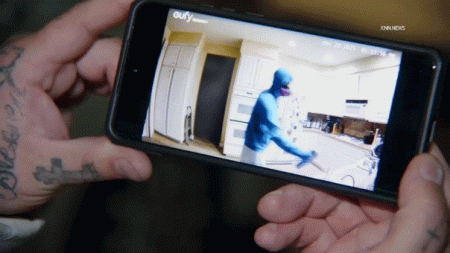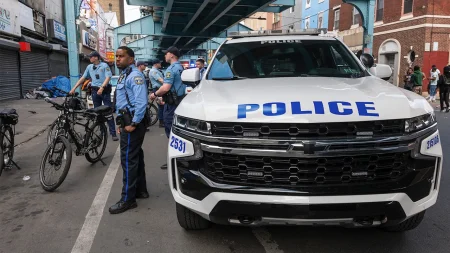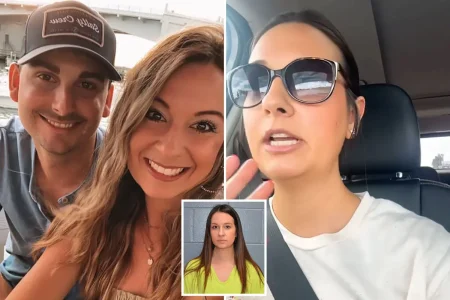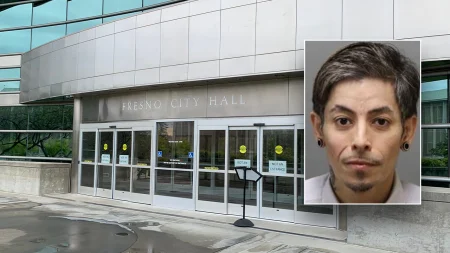The case against Jennifer Crumbley, mother of Oxford High School shooter Ethan Crumbley, has taken a pivotal turn as her new attorneys have filed a motion for acquittal and a new trial, claiming that her trial was fundamentally flawed. In February, a Michigan jury found her guilty of four counts of involuntary manslaughter stemming from her son’s deadly shooting on November 30, 2021, which resulted in the deaths of four classmates and injuries to seven others. The case is characterized as unprecedented, marking the first time parents have faced criminal liability in connection with their child’s violent actions. Jennifer’s legal team argues that prosecutorial overreach tainted the trial process, alleging that she was not fairly represented and that key evidence was withheld by the prosecution. They contend that her conviction reflects a broader issue of criminalizing parental behavior in the context of children’s criminal activity.
Jennifer’s defense, led by attorney Michael Dezsi, is not only contesting the evidence and the trial process but is also appealing to constitutional standards. They assert that the prosecution’s approach lacked integrity, highlighting decisions made by school officials about Ethan’s behavior on the day of the shooting which might have influenced the tragedy that unfolded. The Crumbleys attended a meeting with school officials that day to discuss their son’s concerning drawings but left prematurely, illustrating a potential pattern of negligence. Dezsi’s filing claims that excluding critical impeachment evidence and allowing the jury to decide without a unanimous verdict constitutes a violation of Jennifer’s rights. This legal strategy raises serious questions about the responsibilities of parents regarding their children’s actions and whether such legal precedents could have wider implications for parental culpability in future incidents.
Delving deeper, the legal representation presents a comprehensive argument claiming that essential testimonies, particularly from school counselors who interacted with the Crumbley family, were swayed by agreements that offered them immunity in exchange for their cooperation with the prosecution. This revelation prompts concerns over the impartiality of the witnesses who testified against Jennifer. The defense highlights that the school officials involved, who potentially had knowledge about decisions taken concerning Ethan’s conduct, failed to cooperate with an independent investigation into the events surrounding the shooting, raising doubts about the integrity and motivations of the testimonies rendered in court.
The prosecutor’s office, led by Karen McDonald, has rebuffed claims of prosecutorial overreach, asserting that the Crumbleys were not typical parents but rather exemplified gross negligence. McDonald emphasizes that the accountability of parents in such tragic circumstances is crucial for ensuring school safety and acting as a deterrent against future incidents. The prosecution argues that Jennifer and her husband, James, were complicit in the tragedy due to their inaction regarding Ethan’s mental health issues and the gun involved in the shooting. They contend that the jury’s unanimous decision reflects a fair assessment of the evidence presented, with a focus on parental responsibilities in preventing their children from engaging in violent behavior.
As the appeal process continues, the legal arguments concerning the liability of parents in their children’s actions are expected to shape future discussions about parental responsibilities and the impact of mental health on youth violence. Defense attorneys’ claims that no parent has ever faced such legal challenges garner attention, highlighting the delicate balance of parental rights and responsibilities in the context of juvenile crime. The case has garnered significant media coverage, reflecting a societal reckoning with the boundaries of parental responsibility and the legal implications arising from violent acts committed by minors.
The ongoing legal battle underscores the complexity of assigning blame within familial relationships, particularly in cases involving severe, violent crimes such as school shootings. As Jennifer and James Crumbley each navigate their appeals, they join Ethan, who has already been sentenced to life in prison for his actions, in a deeply interconnected web of accountability that raises critical questions about mental health, parental oversight, and the limits of legal culpability. The cases of the Crumbleys, therefore, may redefine how society engages with issues of youth violence and parental responsibility, potentially setting precedents that extend beyond this specific case into the broader legal and cultural landscape.











